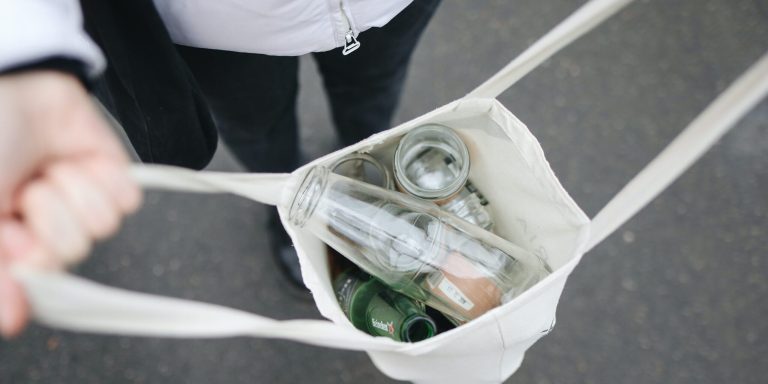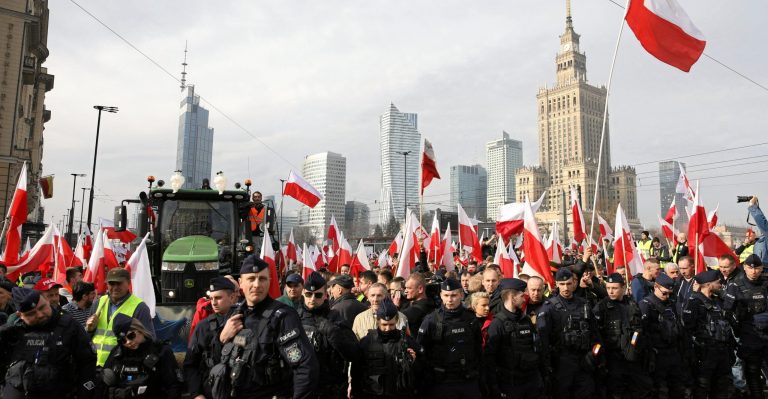Levi Strauss closes factory in Poland after over three decades

US jeans maker Levis Strauss & Co. has announced that it will close a clothing factory in the central Polish city of Plock that has operated since the early 1990s, laying off 650 people.
The company cited problems in hiring qualified staff and rising production costs – driven by high inflation, soaring energy prices, and the weakening of the zloty against the dollar – as reasons for the factory’s planned closure at the end of November this year. Production at the facility is due to stop earlier, in mid-June.
“LS&Co. has long faced an increasingly difficult labour market in Płock – which has posed significant challenges to hiring skilled workers and maintaining full plant capacity – as well as steadily rising production costs,” the company said in a press release quoted by Puls Biznesu, a business daily.
“Given the rapidly changing operating landscape, with high inflation and ever-increasing energy costs, the company is working across the supply chain to ensure flexibility, manage costs and support long-term strategic goals,” it added.
Levi Strauss zamyka fabrykę w Płocku. Nie podaje, ile osób zwolni, a w komunikacie jest sporo korpotalku, ale według ostatnich danych zatrudniał w niej ok. 700 osób https://t.co/VMQ894ZYCm
— Marcel Zatoński (@pbzatonski) April 3, 2024
The company wrote that, although production at the Płock plant in the financial year ending November 2022 increased by 20% year-on-year in value terms, production costs rose by 25% in the same period.
This was “mainly due to higher energy and gas costs (up 70%) and the high cost of production materials resulting from the weakening of the zloty against the dollar”.
Poland has in recent years seen exceptionally high inflation, which peaked at 18.4% in February 2023. Since then, however, it has slowed significantly, reaching 1.9% last month. Poland’s real wages also returned to growth, growing at the fastest pace in 16 years in January.
Inflation has slowed to 1.9% in March, preliminary figures from @GUS_STAT show.
That is less than the 2.2% forecast by analysts and the lowest figure since March 2019.
Just over a year ago, in February 2023, inflation reached a peak of 18.4% but has slowed rapidly since then pic.twitter.com/jXZqWcNhjN
— Notes from Poland 🇵🇱 (@notesfrompoland) March 29, 2024
In recent months, the zloty, which had weakened in the wake of the pandemic and the war in Ukraine, has also strengthened and recently returned to its pre-pandemic exchange rate against the euro thanks to the unlocking of billions in EU funds.
In its announcement, Levi Strauss said that its “main priority is to…provide support to departing colleagues who have worked at the plant that has operated here for the past 33 years”.
The mayor of Płock, Andrzej Nowakowski, has also pledged support for the 650 people who lost their jobs at the plant. He announced that “all institutions of the city” would be at the disposal of the redundant workers and that they would be looking for a new company to occupy the factory in place of Levi Strauss.
A historic car factory in the Polish city of Bielsko-Biała – which has operated since 1948 and produced the iconic Fiat 126p „Maluch” – will close with the loss of over 450 jobs
A trade union says that EU car emissions regulations are behind the decision https://t.co/dPsoJ7rX7W
— Notes from Poland 🇵🇱 (@notesfrompoland) January 5, 2024
Nowakowski said he had only received information about the factory’s closure a few minutes before the facility’s director announced the news to trade unions.
He added that he was told that “high labour costs and high energy costs…make production in Płock, in Europe in general, much more expensive than in Asian countries”.
The mayor said that only a few months earlier he had spoken to the director about investments that were planned and had recently been implemented, such as new machinery worth $1.5 million arriving at the factory in January, reported the Polish Press Agency (PAP).
Poland has been the biggest economic beneficiary of EU membership among the eastern member states that have joined the bloc since 2004, a new report shows.
Over that period, its economy has doubled in size, outpacing all other countries in the region https://t.co/keCA2fZlHV
— Notes from Poland 🇵🇱 (@notesfrompoland) April 3, 2024
Notes from Poland is run by a small editorial team and published by an independent, non-profit foundation that is funded through donations from our readers. We cannot do what we do without your support.
Main image credit: RXAphotos / flickr.com (under CC BY-NC-ND 2.0 DEED)

Alicja Ptak is senior editor at Notes from Poland and a multimedia journalist. She previously worked for Reuters.






